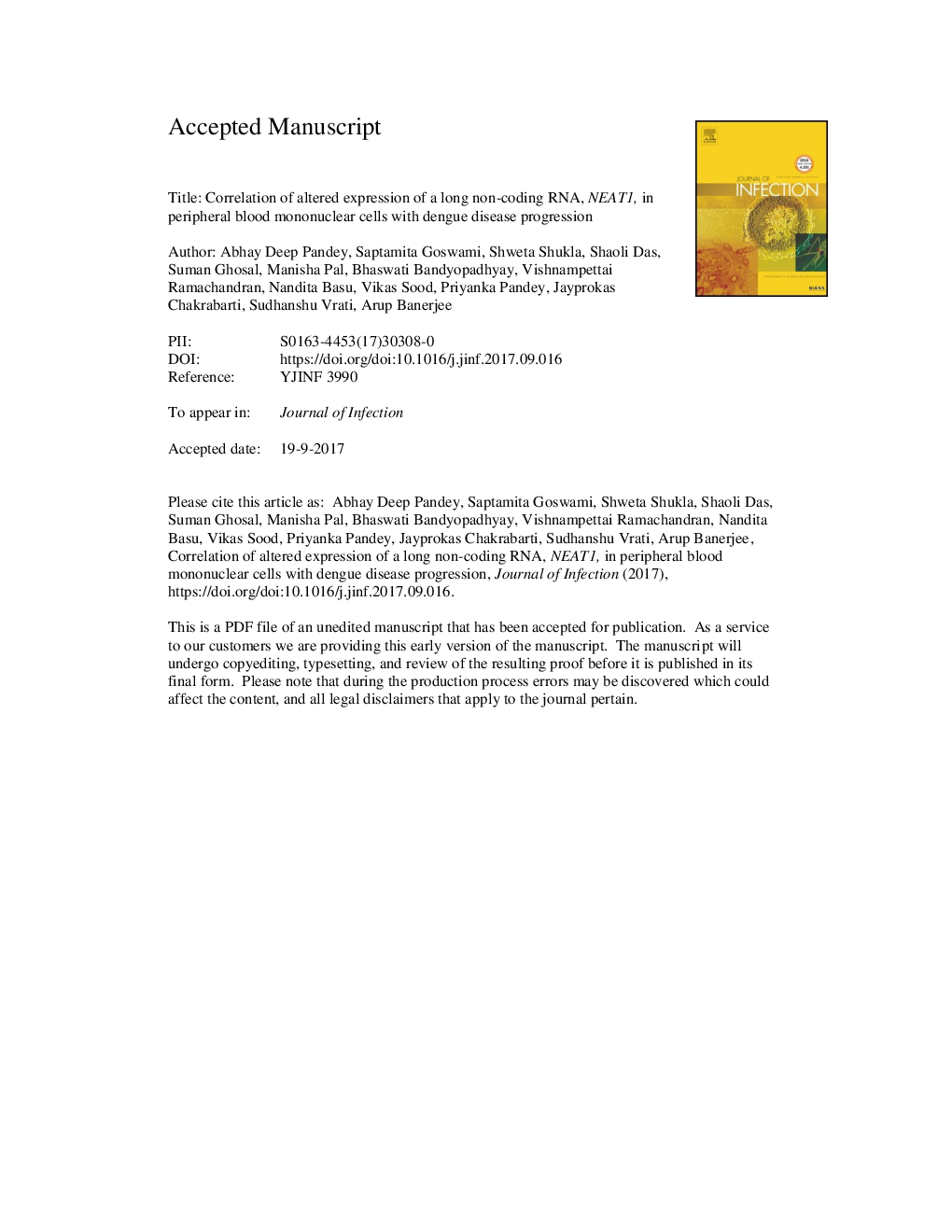| Article ID | Journal | Published Year | Pages | File Type |
|---|---|---|---|---|
| 8740527 | Journal of Infection | 2017 | 31 Pages |
Abstract
The association of long non-coding RNAs (lncRNAs) with dengue disease progression is currently unknown. Therefore, the present study aimed to identify lncRNAs in different categories of dengue patients and evaluate their association with dengue disease progression. Herein, we examined the expression profiles of lncRNAs and protein-coding genes between other febrile illness (OFI) and different grade of dengue patients through high-throughput RNA sequencing. We identified Nuclear Enriched Abundant Transcript 1 (NEAT1) as one of the differentially expressed lncRNAs (adjusted P â¤Â 0.05 and log-fold change â¥Â 2) and subsequently validated the expression by qRT-PCR. The co-expression analysis further revealed that NEAT1 and the coding gene IFI27 were highly co-expressed and negatively correlated with dengue severity. Using regression analysis, we observed that NEAT1 expression was significantly dependent on disease progression (Coefficient = â0.27750, SE Coefficient = 0.07145, and t = â3.88).Further, receiver operating characteristic (ROC) curve revealed that NEAT1 expression could discriminate DI from DS (sensitivity and specificity of 100% (95%CI: 85.69 - 97.22) and area under the curve (AUC) = 0.97). Overall, the results of this study offer the first experimental evidence demonstrating the correlation between lncRNAs and severe dengue phenotype. Monitoring NEAT1and IFI27 expression in PBMC may be useful in understanding dengue virus-induced disease progression.
Keywords
Related Topics
Life Sciences
Immunology and Microbiology
Applied Microbiology and Biotechnology
Authors
Abhay Deep Pandey, Saptamita Goswami, Shweta Shukla, Shaoli Das, Suman Ghosal, Manisha Pal, Bhaswati Bandyopadhyay, Vishnampettai Ramachandran, Nandita Basu, Vikas Sood, Priyanka Pandey, Jayprokas Chakrabarti, Sudhanshu Vrati, Arup Banerjee,
